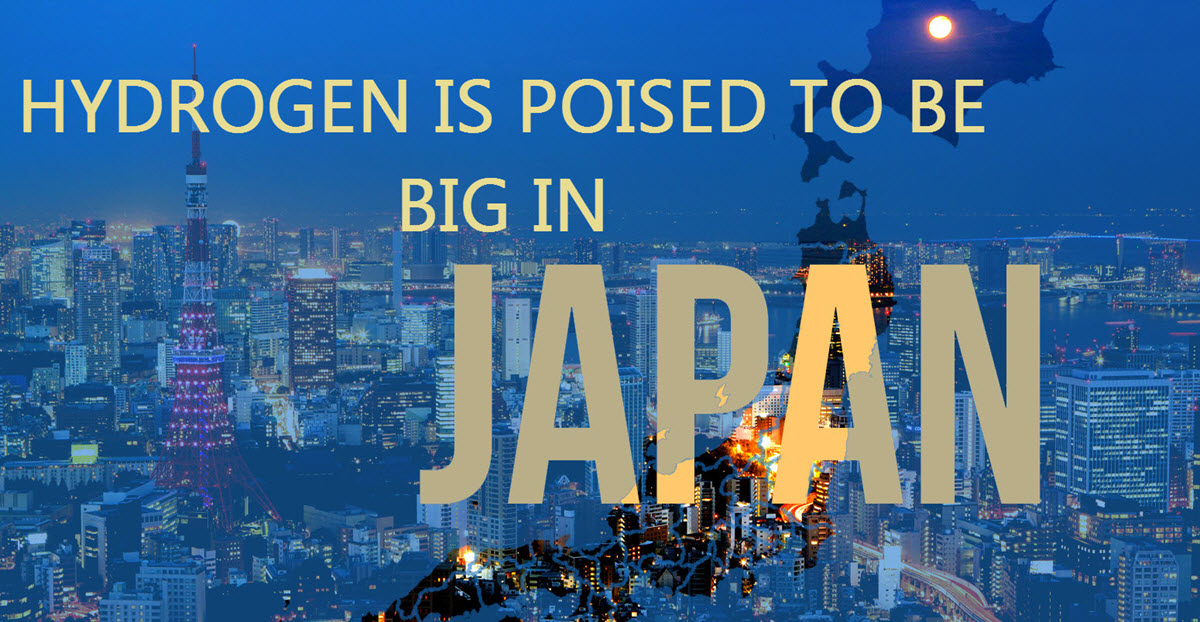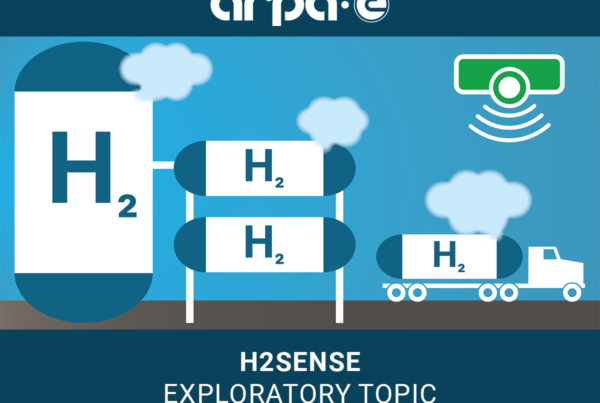
The Japanese are well-known for their discipline, determination to reinvent themselves, and to define a common vision to create new realities.
The Land of The Rising Sun has intentions to enter the era where oil is not the sole protagonist of its energy landscape. The new vision is an ambitious energy plan centered around a hydrogen-fueled economy to increase energy autonomy and significantly reduce carbon emissions. This has the potential to make Japan the first country to realize a hydrogen-powered society and position the nation as a fuel cell technology exporter.
A Long Story of Energy Dependence
The energy landscape of Japan, from a dependency standpoint, is not so different from other countries. According to a report published in 2017 by METE, The Ministry of Economy, Trade, and Industry of Japan, the country relies on imported fossil fuels to supply its energy requirements. More than 90% of the energy consumed in Japan is acquired from foreign countries, primarily from the Middle East. Since the devastating Fukushima earthquake in 2011, Japan has become more dependent on foreign energy supply.
Humans strive for cooperation. It is in our DNA, in the way we have evolved and it what has made it possible for us to change the world as no other species can. However, we also long for autonomy. It is the eternal dichotomy of our human condition: we need to find a balance between cooperation and autonomy. This dynamic seems to be gaining momentum in the energy field. Since the Second Industrial Revolution, we have become accustomed to import the energy that fuels our societies and economies. The Oil Road leads to those few countries that, with their black gold, fueled the development of our societies as we know them and engaged in a long trade relationship of energy with the rest of the world.
Japan has firm intentions to change its energy supply status quo to gain power autonomy. This has the potential to change the way Japan cooperates with the world in terms of energy supply and generation.
Sharing the Pain
When traveling to Tokyo, it became customary for me to travel with an umbrella in my suitcase. Quite frequently, just as back at home in Amsterdam, the rain would decorate the landscape impregnating the city of humidity and carefully covering it with an oriental nostalgic veil. In my personal experience, Tokyo seemed like a dragon of exaggerated proportions that was miraculously tamed to a clean, self-grooming feline that forgot about its wild nature. Petting this apparently harmless feline, I would walk the streets of the world’s biggest urban area, enjoying the cleanliness of the city, thinking about the changes in demographics and in the declining oil consumption of the Land of The Rising Sun. It was 2017, the Japanese Oil Industry was feeling the pain of years of continuous decrease in oil demand caused by the country’s shrinking population, improved energy efficiency, and slow economic growth.
Japanese are good at sharing the pain. Their cultural heritage, far away from our individualistic Western societies, is based on the collective wellbeing, shared values, and common goals. A country accustomed to deal with the aftermath of devastating seismic activity and typhoons has learned to cooperate during adversity and reinvent itself.
To share the pain, the government followed a Solomonic approach and requested oil refiners to reduce throughput. This is not good news for any oil company. Refiners’ revenue depends on how much oil they can process to convert it into valuable products such as diesel, gasoline, or jet fuel. Every barrel counts. While they may continue to operate because they are sharing the pain, that does not imply that the pain will go away. In fact, that same year in December, Japan released the Basic Hydrogen Strategy where it announced its commitment to developing the world’s first “Hydrogen Society”.
Energy Autonomy: An Ambitious Plan Made in Japan
Japan has a long story of attempts to gain energy autonomy by means of diversifying its energy portfolio. These attempts have proven far from effective and Fukushima was the last wake up call. The time was ripe for a new vision. If there is something we have learned from Japan over the last few decades, is their outstanding capability to succeed in developing products and technologies that are world-wide accepted for their reliability and quality. This model does not cease to motivate the Nippon dream. Japanese are known for developing a vision and working towards a goal with almost like a machine-like approach.
The Ministry of Economy, Trade and Industry (METI) announced that Japan plans to embark on a journey to decarbonize its economy by adopting hydrogen as its primary fuel source. There are three main reasons underpinning Japan’s no less than epic and ambitious decision:
1. Gain energy autonomy;
2. Reduction of environmental footprint; and
3. Positioning of Japan as fuel cells technology exporter.
If this dream materializes, Japan may secure a place in the industry as a fuel cell technology innovator and a pioneer of the hydrogen economy model. These are products that can contribute to the global market. It is an ambitious dream with the potential of opening new ways of cooperating with the world and achieve a higher level of energy autonomy. Not bad at all, as it satisfies our eternal dichotomy: the need for cooperation and autonomy.
A Cleaner Beast
While wandering the vibrant streets of Tokyo, one of the world’s largest cities, I could not help but feel mesmerized about the level of organization of Japan’s capital city. Now with Tokyo on my mind, I wonder how the city would transform if Japan succeeds in transitioning into a hydrogen-fueled society. It has the potential to become an example of a sustainability pioneer on a large scale. The tamed self-grooming feline would further transform into a low carbon-emissions city embracing fuel cell technology to power its dynamic nature.
Furthermore, the transformation of Japan into a hydrogen economy could potentially allow traditional oil refineries to diversify their energy portfolio and participate in the local renewables energy market. The pain that oil refiners have felt due to declining oil consumption could be replaced by the gain that is sustainable over time and that is kinder to the environment. Fuel cell technology developed by the Japanese could slowly incursion into other markets with the ambition to use hydrogen to store electricity and as a fuel.
Last but not least, Japan would align with its vision of achieving higher energy autonomy and cooperation to export fuel cells technology. “Hydrogen is poised to be big in Japan”

Magnolia Tovar Chacon, Staff Writer
 Magnolia Tovar is a Chemical Engineer with 18 years of experience in the energy sector in more than 20 countries. She has extensive experience in consulting, business development and management of large consulting projects and is also a certified Ontological Coach.
Magnolia Tovar is a Chemical Engineer with 18 years of experience in the energy sector in more than 20 countries. She has extensive experience in consulting, business development and management of large consulting projects and is also a certified Ontological Coach.
Magnolia has a passion for creating awareness about renewable energy and the development of a hydrogen global economy.
Read the most up to date Fuel Cell and Hydrogen Industry news at FuelCellsWorks




